About
Techno Main Salt Lake (formerly known as Techno India), a college with a difference, was established in the year 2001 initially with 4 AICTE approved Degree Engineering Courses including the Department of Electronics and Instrumentation Engineering. Starting from its birth, the department is constantly trying to evolve, advance and enhance the fundamentals of Applied Electronics and Instrumentation Engineering with a motive in building interest amongst students for specialized research, develop skills on new and current topics and creating the ability in them for better academic credentials. Apart from these, the department also encourages the students to participate in various intra and inter college events to help them develop quality interpersonal and professional skills in academic and non- academic domains.
Mission
1. To provide high quality Technical education and Training in response to the changing needs of industries and Society through an innovative learning process related to Electronics and Instrumentation Engineering.
2. To develop employable and competent Electronics and Instrumentation engineers with high academic credentials and to inspire them to take up higher studies and research.
3. To contribute towards the betterment of society by imparting practical skills and technical knowledge to the students.
4. To make Engineers with high professional ethics, social and human values and responsive to community needs.
Vision
The vision of the department is to create Electronics & Instrumentation engineers with outstanding technical competency acceptable worldwide to impart research aptitude for societal benefit.
Program Outcomes
1. Engineering knowledge: Apply the knowledge of mathematics, science, engineering fundamentals, and engineering specialization to the solution of complex engineering problems.
2. Problem analysis: Identify, formulate, research literature, and analyze complex engineering problems reaching substantiated conclusions using first principles of mathematics, natural sciences, and engineering sciences.
3. Design/development of solutions: Design solutions for complex engineering problems and design system components or processes that meet the specified needs with appropriate consideration for the public health and safety, and the cultural, societal, and environmental considerations.
4. Conduct investigations of complex problems: Use research-based knowledge and research methods including design of experiments, analysis and interpretation of data, and synthesis of the information to provide valid conclusions.
5. Modern tool usage: Create, select, and apply appropriate techniques, resources, and modern engineeringtools including prediction and modelling to complex engineering activities with an understanding of the limitations.
6. The engineer and society: Apply reasoning informed by the contextual knowledge to assess societal, health, safety, legal and cultural issues and the consequent responsibilities relevant to the professional engineering practice.
7. Environment and sustainability: Understand the impact of the professional engineering solutions in societal and environmental contexts, and demonstrate the knowledge of, and need for sustainable development.
8. Ethics: Apply ethical principles and commit to professional ethics and responsibilities and norms of the engineering practice.
9. Individual and team work: Function effectively as an individual, and as a member or leader in diverse teams, and in multidisciplinary settings.
10. Communication: Communicate effectively on complex engineering activities with the engineering community and with society at large, such as, being able to comprehend and write effective reports and design documentation, make effective presentations, and give and receive clear instructions.
11. Project management and finance: Demonstrate knowledge and understanding of the engineeringand management principles and apply these to one’s own work, as a member and leader in a team, to manage projects and in multidisciplinary environments.
12. Life-long learning: Recognize the need for, and have the preparation and ability to engage in independent and life-long learning in the broadest context of technological change.
Program Educational Objectives
1. Graduates of EIE program will be able to incorporate their knowledge to excel in professional career and also use the fundamental knowledge to enhance the power of invention, innovation & entrepreneurship.
2. Graduates of EIE program will have strong foundation in mathematical, scientific and engineering fundamentals necessary to formulate, solve and analyze engineering problems related to industry and research through lifelong learning.
3. Graduates of EIE program will be able to inculcate the professional and ethical code of conduct, communication skills, and team work so as to use technology for the progress to the society.
Program Specific Outcomes
1. Ability to explore the design, installation & operation of the basic instrumentation systems used in industrial environments.
2. Apply appropriate technique, hardware and software tools to develop microprocessor and microcontroller based instrumentation systems for process automation and control.
3. Ability to use scientific & engineering fundamentals , skills & tools to formulate, solve & analyze instrumentation problems related to industry & research.
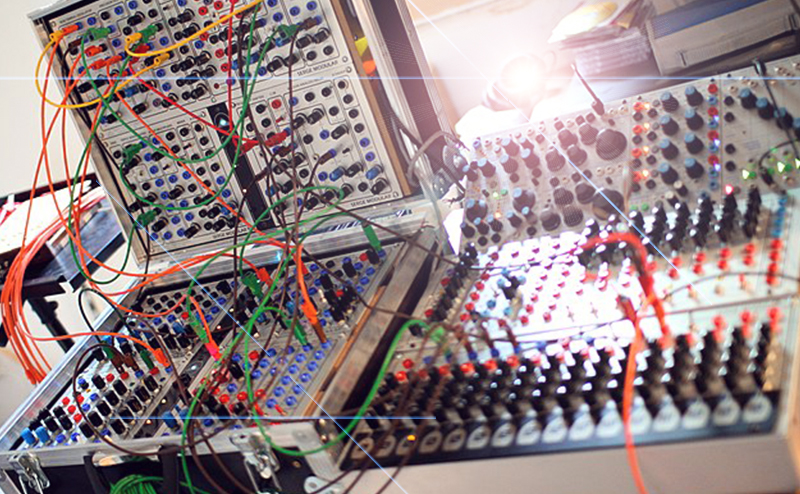
Electronics &
Instrumentation Engineering
B.Tech : Techno Main Salt Lake provides B.Tech program in the department of Electronics & Instrumentation Engineering. Students enrolled in this course study the principles and operations of measuring instruments used in the design and configuration of automated systems. This branch of study imparts knowledge about how to create, construct and maintain measuring and control devices and systems found in manufacturing plants and research institutions.
B.Tech Lateral : Techno Main Salt Lake provides B.Tech lateral entry program in the department of Electronics & Instrumentation Engineering. This course enables aspirants with 3 years diploma in engineering or an equivalent degree to get admitted in 2nd year of B.Tech.
M.Tech : Techno Main Salt Lake provides M.Tech program in the department of Electronics & Instrumentation Engineering. A master’s degree in Engineering involves research studies in varied fields of specializations. Participation in International conferences and submission of research methodologies in premier journals are paid utmost importance at Techno Main.
Syllabus
Electronics and Instrumentation Engineering
Intake
B.Tech in Electronics and Instrumentation Engineering : 60
Laboratories
1. PROCESS CONTROL AND AUTOMATION LABORATORY
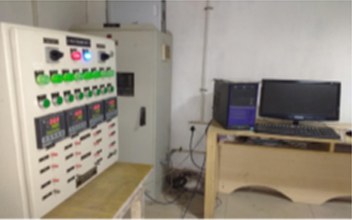
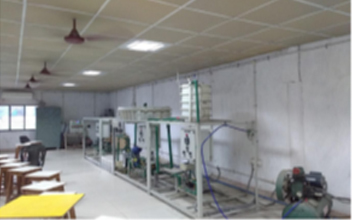
3. ELECTRICAL AND ELECTRONIC MEASUREMENT AND INSTRUMENTATION LABORATORY
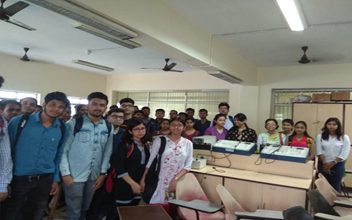
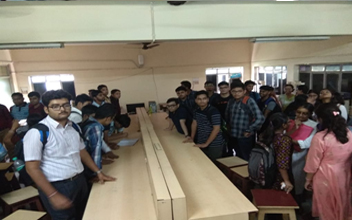
6. IOT LABORATARY
7. TELEMETRY LABORATORY
8. COMPUTATION LAB
Research
Contact
Department of Computer Science and Engineering
Phase-III Building, EM4/1, Sector-V, Salt Lake,Kolkata-700091.
E-mail: hod.cse14@gmail.com / hodcse@ticollege.ac.in
H.O.D: Extn. No. 240, FACULTY MEMBERS: Extn. No. 216
Interactive Learning
Techno India provides virtual interactive learning facilities to its students; such repositories can be accessed anytime and anywhere that ensure that students get hassle free access to digital library, online journals and digital notes 24x7. The digital repositories comprise a vast collection of e-books, publications, notes as well as case-studies from renowned foreign authors and industry experts. As an academic institute of repute, Techno India strives towards making the learning experience promising for the aspirants so that the location or venue is never a barrier.
Quick Links
TMSL News
Contact us
Admission Office
Helpline No: 9836544416 / 17 / 18 / 19
1. TECHNO INDIA CHINGRIGHATA CAMPUS - LB 10, EM Bypass, Sector 3,Chingrighata, Kolkata 700098, WB. (Beside Leather Technology College [Service Road])
2. TECHNO INDIA (2nd Floor)- EM-4/1, Sector-V, Salt Lake, Kolkata-700091, WB.
Campus Address
EM-4/1, Sector-V, Salt Lake, Kolkata-700091, WB Contact No: 033-23575683 / 84 / 86
Email : info@ticollege.ac.in
principal@ticollege.ac.in
Makaut Address
BF 142, BF Block, Sector 1, Salt Lake City, Kolkata, West Bengal 700064.
Website : www.wbut.ac.in
Copyright © | A unit of Techno India Group | All rights reserved
